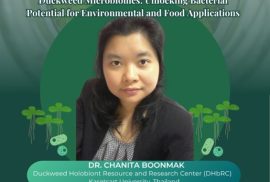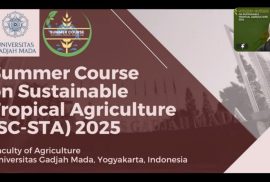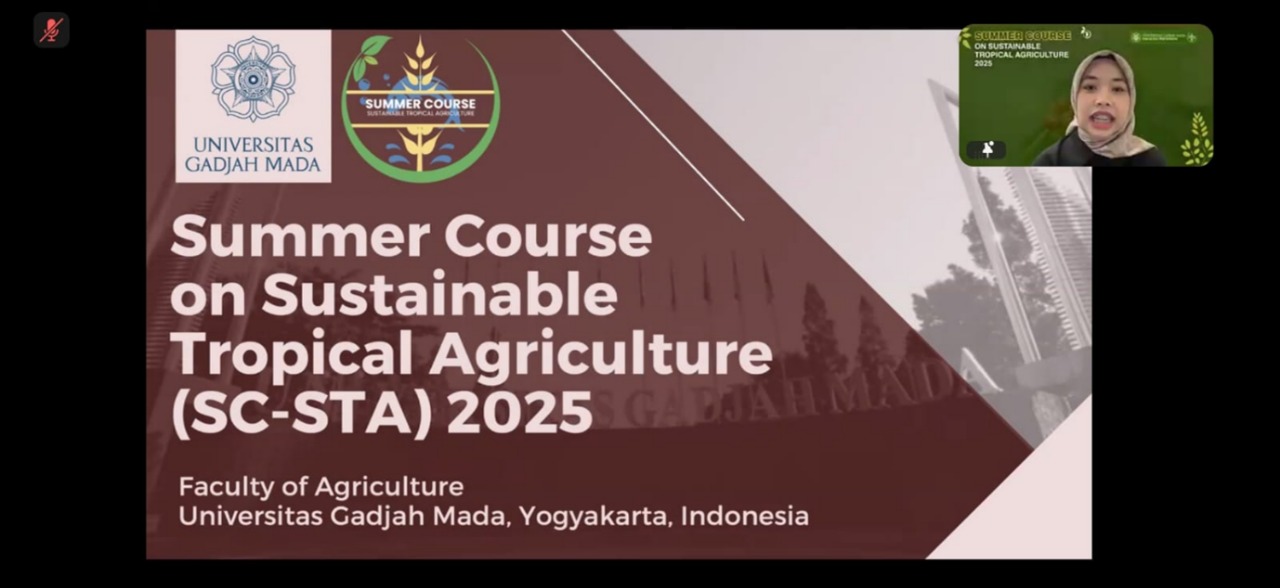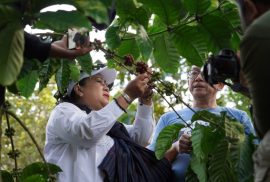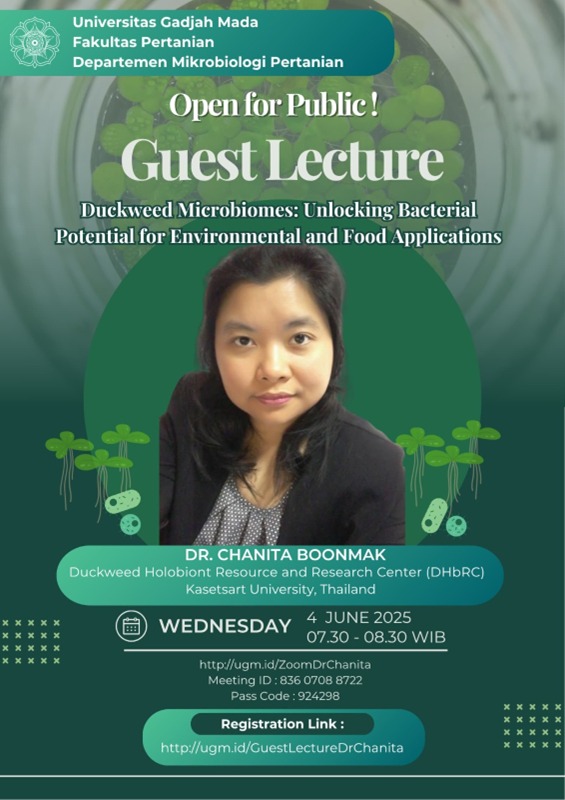
The Faculty of Agriculture at Universitas Gadjah Mada (Faperta UGM), in collaboration with Kasetsart University, Thailand, held an open guest lecture for the UGM academic community and the general public on Wednesday, June 4, 2025. The lecture was delivered online via Zoom Meeting by Dr. Chanita Boonmak from the Duckweed Holobiont Resource and Research Center (DHBC), Kasetsart University, Thailand.
The lecture, titled “Duckweed Microbiome: Unlocking Bacterial Potential for Environmental and Food Applications”, presented research findings from a collaborative project funded by the Japan Science and Technology Agency (JST) and the Japan International Cooperation Agency (JICA) under the Science and Technology Research Partnership for Sustainable Development (SATREPS) program.

